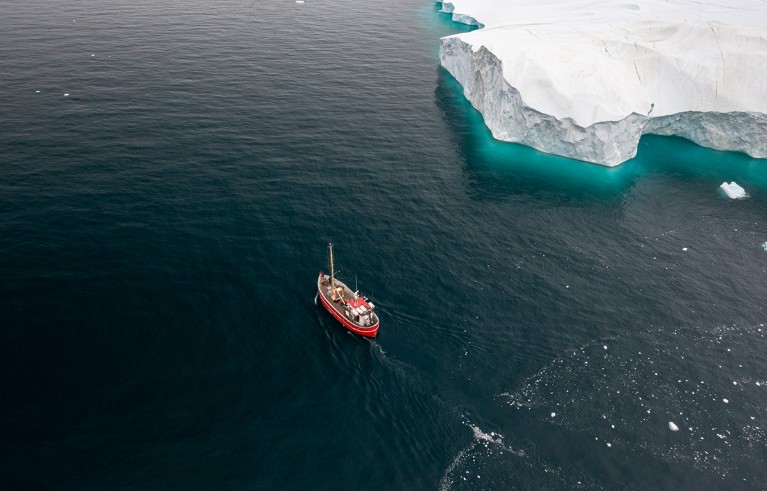The Arctic Ocean will lose all summer sea ice in the coming decades, even if humans drastically cut carbon emissions1.
Floating sea ice on the Arctic Ocean has been shrinking and thinning in recent decades as carbon dioxide levels rise, leading to higher temperatures in the Arctic region. Previous studies have tried to forecast how soon the Arctic will be ice-free at the end of the summer.
A team led by Yeon-Hee Kim at Pohang University of Science and Technology in South Korea analysed three sets of satellite observations of Arctic sea ice, each of which included data from 1979 to 2019. The scientists compared the observations with climate simulations that incorporate human influences such as the amounts of greenhouse gases and other climate-altering substances that are entering the atmosphere.
The observations showed that human activities are already having an impact on Arctic sea ice all year round. The simulations predicted that the Arctic could be ice-free by the end of the summer in even the lowest-emission scenarios. This could occur as early as 2030.




